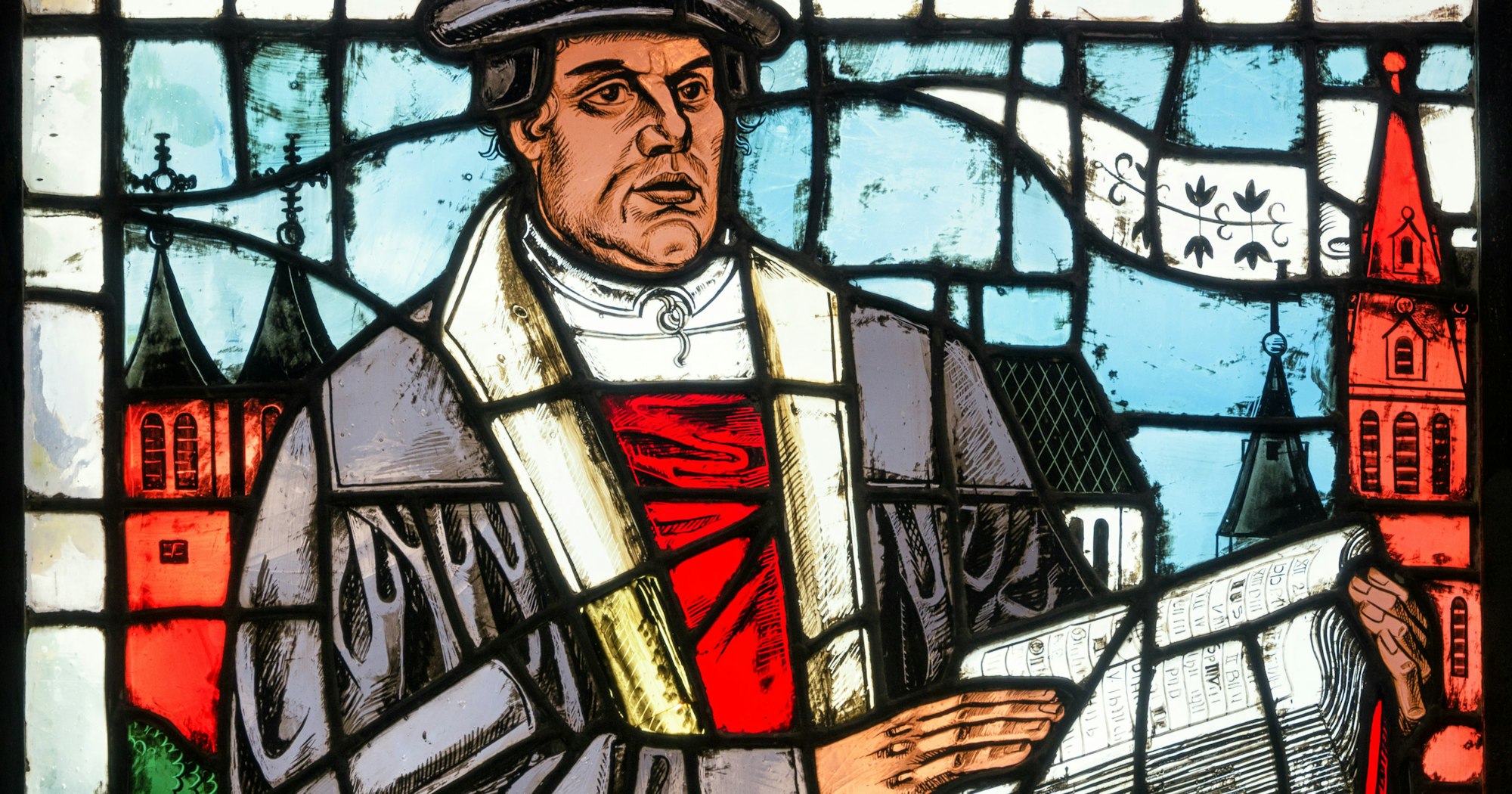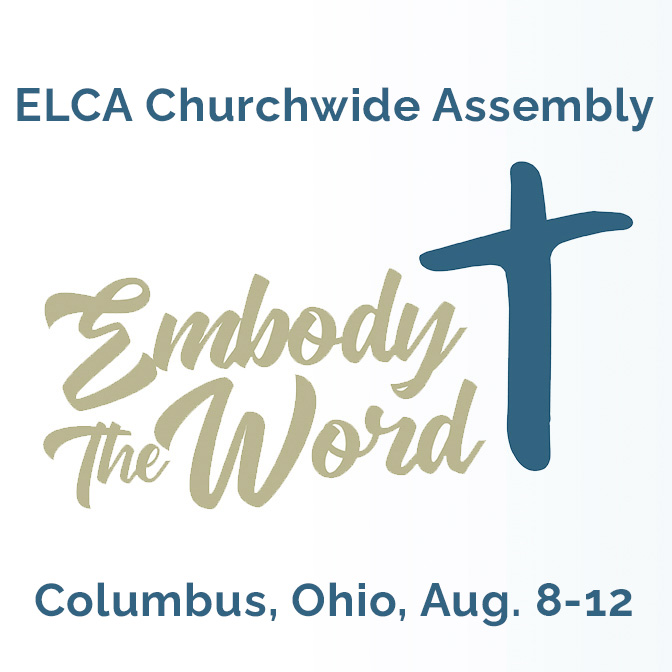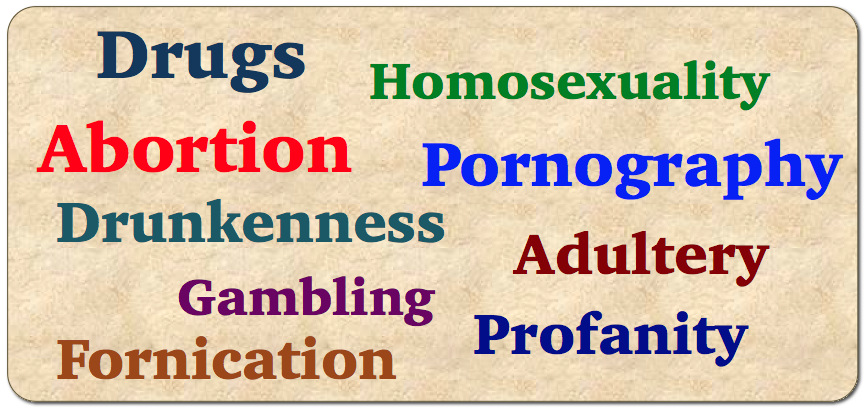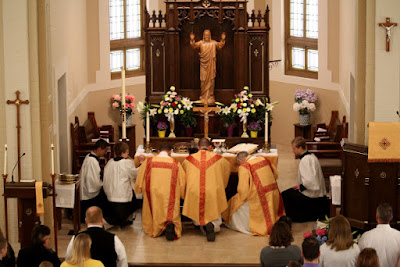Where is the truth of God? Where can one turn to the one authority that does not lie or change but is eternal? What is the one foundation upon which you can build your faith, hope, and life? All of these are wrapped up into the hit of the hammer that was heard around the world. Is our faith built upon the Church? Does it rest upon councils that do not err? Is it guaranteed by popes (or bishops) immune from error? What is tradition and it is dependable? These were the burning questions that gave birth to the Reformation and with these truths the Lutheran fathers wrestled within themselves and before the Roman and civil authorities bent on preserving the status quo.
You cannot get to justification by grace through faith without the Scriptures speaking with authoritative voice. Neither can you get to a treasury of merits or purgatory or indulgences or an infallible papacy if you begin with Scripture. The challenge of that day, like our own, is less a question of where you end up but where you begin. That is why the Reformation is not mere history. For our own age has gone well past trying to posit the authority in tradition, council, or office (pope) and left us with so many authorities that there is but chaos and confusion left. Reason has given way to experience and experience has become so individual and personal that it cannot speak beyond the realm of self. Scripture has become a pawn in the hands of those who get to decide what it says to them and no one can issue any challenge to this deception.
But the answer is not quite as simple as inerrancy that some trumpet. For we are not in possession of a book without error that simply witnesses to what was. The authority of Scripture is not merely in its infallibility but in its efficacy. The Word still speaks and is not only a record of what was once spoken. Here the genius of the Lutheran confession is that Scripture is not merely a fence post to reign in error but the voice accomplishing that which it says and doing that which it promises -- right now among us! The issue remains authority and the answer is not simply a book that cannot lie but a God who speaks through this changeless Word the eternal and life-giving Gospel. While some are in search of a book or an authority that will tell others they are wrong and others are in search of a book or an authority that will allow their personal truth to stand, what we get in Scripture is a voice and a power by the Spirit to call forth faith, bring the heart to repentance, and build a new life and identity now and for everlasting life. It remains this that is the challenge for our time -- authority and what that authority is.
Our debates of sex and gender, race and injustice, climate and peace so often remain debates about narrow issues instead of the wider and larger worldview that comes to us from the Word of God. We are searching for proof texts to support our position while God is speaking the Word that seeks the lost and rescues the sinner and redeems the unworthy. We have succumbed to the foible of talking about Scripture as if it were merely a record of the past or a suggestion for the future and not the voice of God accomplishing His purpose. Luther was searching not simply for a word but a sacramental Word to trust in the face of a world and a personal life of disappointment, failure, and anxiety. He was not alone. Jesus is met not in our imagination or our feelings but in the places of His promise -- the Word that leads us into all truth, calls forth faith, and guides us as a lamp to our feet and the Sacraments of new birth, restoration of the fallen, and the food of heaven.
It was not for justification that Luther sought Scripture but in seeking Scripture he found the ageless truth of justification, hidden in the church of his day except where that Word simply spoke. So where the radical Reformers insisted that too much error, falsehood, and deception had entered the Church that one must begin again and anew, Luther insisted that where the Word of God spoke and the Sacraments of Christ were administered, the Church continued to live -- even with error codified and confirmed at the highest levels of its structures. It was for this that Luther emphasized the congregational -- not to detract from the obvious that the congregations together with their ministerium were also church but because what preserved the faith in darkest age was precisely the Word spoken and the Sacraments administered where the faithful gathered. The trunk of the tree was and is not the highest offices but the lowly places where the Word is read and preached and the Sacraments administered. The congregations are not the individual leaves but the higher offices of earthly structures. For Luther, the authority of the Word was what gave growth to the congregations and the congregations flourished where this efficacious Word accomplished God's purpose and gave limb and branch and leaf to the rest of the expression of the Church.
The question then and now is authority -- whom do we trust? The answer then and now is not council or office but the Word of God that endures forever. We encounter that Word not in some ethereal plane of imagination and spirit but in the concrete of Word and Sacrament. So that authoritative Word is primarily a liturgical one -- we meet that Word addressing us with law to bring us to repentance and with Gospel to raise us up as the justified and then to lead us as those being sanctified first and foremost on Sunday morning around font, pulpit, and altar. This was the genius of the Reformation then and now. If we are willing, we may find that this eternal truth will be the foundation not merely for survival but for the flourishing of God's planting that is His Church.





















